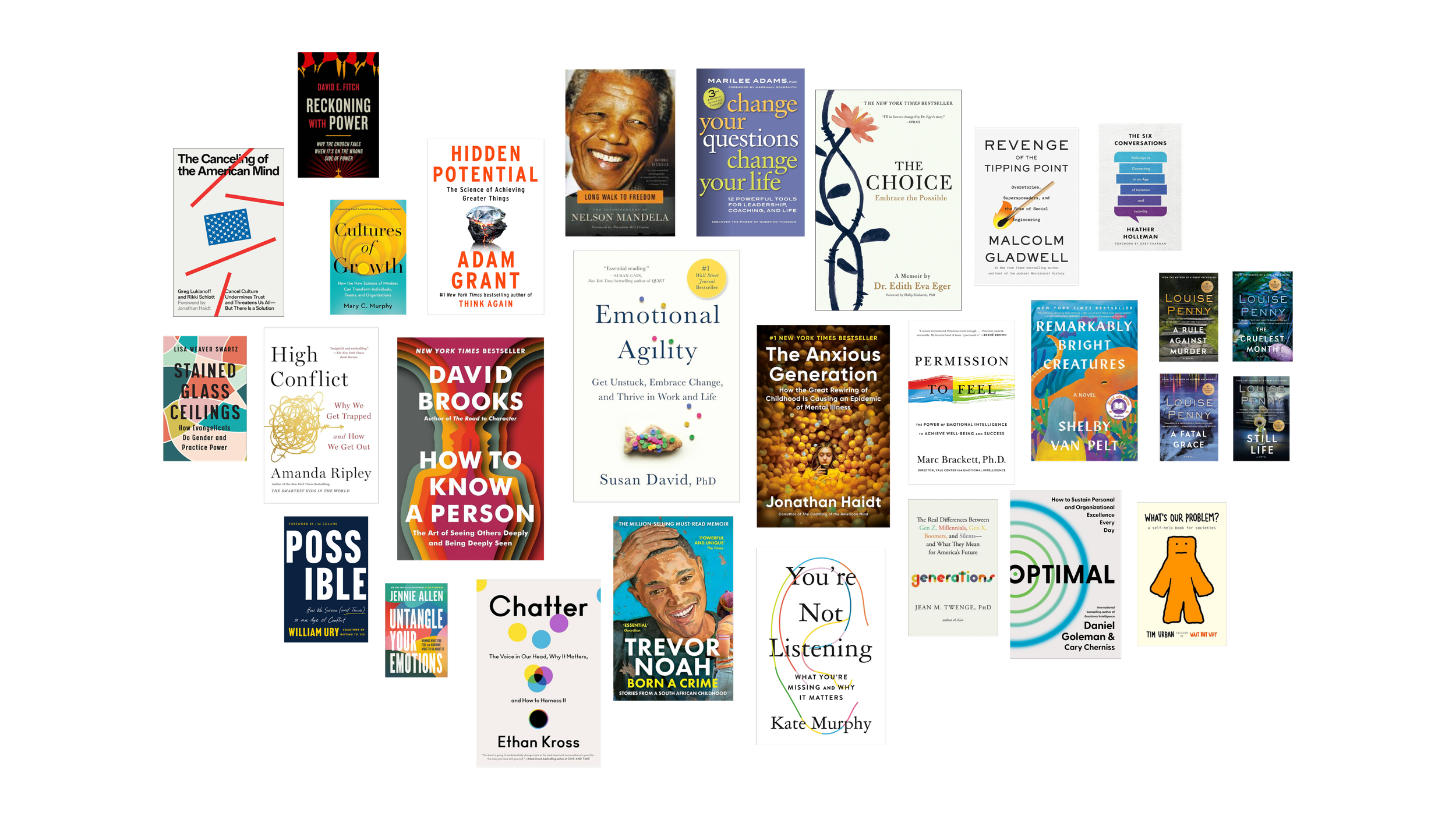What I Read in 2024
As someone deeply committed to curiosity, I see reading as a powerful way to explore the world and uncover what I might be missing. It challenges my assumptions, reinforces the values I live by, and equips me with practical tools to apply new insights. You’ll notice my recommendations are naturally biased toward books that help navigate conflict—what can I say, it’s in my blood. I hope this list sparks your curiosity as we head into 2025.
Emotional Agility - Susan David
Quick thoughts:
David gives us the tools to navigate the natural range of emotions in our lives
This feels like the quintessential book on emotions
In Emotional Agility, David gives us the mindset and tools to harness our emotions. Not only are emotions normal, but they contain critical information to figure out what matters to us and others. Learn how to unhook yourself from unhelpful patterns, negative internal dialogues and how to deal with emotions as they arise. In the social and dynamic nature of our world, Emotional Agility will help you navigate challenges while remaining engaged, open and receptive.
How to Know a Person - David Brooks
Quick thoughts:
In the most non cliché way, this book has a lot of soul
Offers such simple truths in a compelling way
I think we take for granted the degree to which people are learning these very human skills in homes or formative communities. Brooks outlines ways we can make more intentional efforts
I believe so many conflicts could be worked through or mitigated entirely if we learned to have better conversations. David Brooks’ How to Know a Person provides incredible insights on how to do just that—know a person through conversation. Developing conflict capacity comes from embodying the traits, skills, and mindsets that Brooks introduces in this book. Like conflict, navigating conversations and getting to know people is an art, not a science. This is a great resource if you’re looking for additional inspiration on how to be curious to navigate conflictual conversations.
Hidden Potential - Adam Grant
Quick thoughts:
I haven’t read an Adam Grant book I didn’t like
It’s informative and inspiring
This book is filled with truths that empower
In Hidden Potential, Adam Grant lays the groundwork for how to stumble forward, make mistakes, and learn from being on our growth edge. Grant outlines the individual characteristics to foster to maximize our potential, the structures we can create to sustain motivation, and the systems of opportunity we can develop to help more people realize their potential. This book is a caution on underestimating ourselves and others. Grant also rightly positions personal and relational well-being above achievement and success. If you lead others this is a must read.
The Anxious Generation - Jonathan Haidt
Quick thoughts:
I found this book to be both devastating and necessary information
The graphs showing the statistical trends made me cry
This was both engaging, informative and comprehensive
This book feels urgent
Since the introduction of the smart phone our young people are more anxious than ever. Jonathan Haidt provides a confronting picture of the detrimental effects of phone-based childhoods, and then provides practical solutions for parents, educators and policy makers to implement. Haidt names the problem: we are overprotecting our kids in the real world and under protecting them online.
If you have influence over young people (which I argue we all do in some capacity) this is an urgent read. We can take actionable steps to develop healthier, more resilient future generations.
The Choice - Edith Eger
Quick thoughts:
I couldn’t put this book down
This book was sobering, compelling, and insightful
Eger is an inspiration
In The Choice, Dr. Edith Eger retells the harrowing and remarkable story of her surviving the Holocaust and then continually choosing to survive in the days and years that follow. As someone who faced unspeakable tragedies, she knows firsthand that suffering is universal, but victimhood is a choice. Eger notes that getting stuck as a victim comes from within, and therefore, we have the power to shift our way of thinking. Through compelling narrative and moving reflections, Eger provides insights that will change the way you think, reflect, and respond to your circumstances.
What should I read next?!
I find book recommendations very cozy. Based on some of the themes you see listed above, if there’s a book you think I should read PLEASE let me know. I would also love to know if you ended up reading anything from previous annual reviews and your thoughts on what you’ve read.
Stay Curious,
